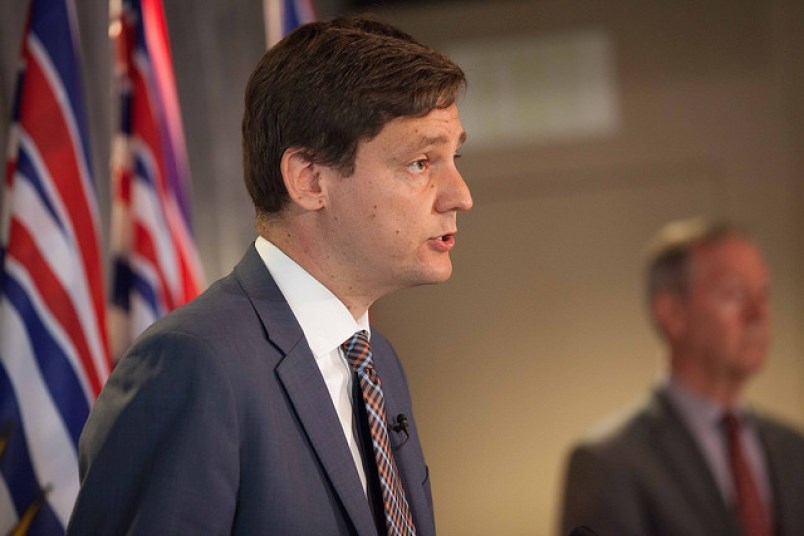Premier David Eby unveiled his plan Sunday to place the most severely addicted, brain-damaged, street-entrenched people into involuntary long-term care — a detailed and reasonable proposal that, unfortunately for the BC NDP, may be four years, two premiers and two elections too late.
Eby announced legislative changes to expand forced treatment for those suffering concurrent mental health, brain injury and addictions issues, as well as new secure treatment facilities around the province, new secure wings inside B.C. prisons and new provisions to help parents assign youth into treatment against their will.
“What is apparent is that we cannot wait,” he said.
“This is a group of people that need intensive, interventionist support. They are not able to ask for help for themselves. They will not benefit from voluntary treatment. They require somebody to step [in] and recognize that they lack the capacity to look after themselves, make decisions to keep themselves safe.”
If that sounds familiar it’s because the BC NDP have been promising, and then reneging, on the issue since 2020.
That’s when then-premier John Horgan first introduced involuntary care legislation to allow youth to be held in hospital for up to a week after an overdose to get proper addictions and mental health supports.
“I believe this is an important bill because I've talked to parents who've lost children, and they wanted action,” Horgan said at the time.
“They wanted government to do something, so there was at least a legacy for the loss of a loved one in their family.”
But Horgan faced criticism from groups that said such a change could scare youth from seeking help, traumatize Indigenous people whose family members were previously held by the state, violate civil rights and leave kids more vulnerable to overdoses if they chose to keep using.
Horgan backed off in 2021.
Then Eby came along, making involuntary care a centrepiece of his 2022 BC NDP leadership bid.
“This policy of non-intervention is one that can’t continue,” he said at the time.
“If we can prevent some deaths and intervene earlier to support people, so that they at least have a shot, I think we should do it.”
Eby won the leadership and became premier. He faced off against the same critics as Horgan. Within four months, he backed down too.
That led to Sunday, where the NDP reversed its previous reversal on involuntary care — which, just to be clear, reversed the reversal before that too.
The government’s third attempt at involuntary care had two major differences.
The first was Dr. Daniel Vigo, an outside expert in addictions that Eby hired to investigate the issue. Vigo’s data collection and research added sophistication and medical expertise to the proposal.
The second was the endorsement from three prominent First Nations leaders. The NDP’s original two attempts at involuntary care had none. On Sunday, the chiefs of the Katzie, Tsleil-Waututh and Musqueam nations said they support the initiative to save the lives of their members.
The proposal now has more money attached, locations identified for the first prison and community facilities, draft legislation in the works, data to underpin the conclusions and clinical guidelines for physicians — though all of it rests on the BC NDP winning re-election.
“I feel a huge urgency around these issues,” Eby said. “I wish we could have done this many years ago.”
In those intervening years, heart-breaking horror stories have piled up on the government.
Horgan was compelled to act after meeting families like Rachel Staples and Brock Eurchuk in Victoria, whose 16-year-old teen Elliot died of an overdose in 2018 after they were unable to compel their son into treatment as he slid into street drugs, and unable to access his medical history to know how badly he was in the grips of addiction.
Six years later, the parents of 13-year-old Brianna MacDonald tell a similar story, as they were unable to convince health-care officials to hold her daughter for treatment after suspected overdoses. Brianna was found dead in an Abbotsford homeless camp last month.
“They’ve had plenty of opportunity to be able to do this in the past, and they decided not to,” B.C. Conservative Leader John Rustad told me on Sunday. “And here they are now, flip-flopping and running against what their history has been.”
Rustad accused the NDP of ignoring families for years on the issue and only acting now out of political survival.
The Conservatives have been pushing involuntary care, consistently, for months. Their proposal, though far less detailed, is likely similar enough to Eby’s as to be a wash in the minds of voters.
The question, then, is not necessarily who has the better plan for involuntary care, but who British Columbians trust more to actually follow through and get it done in power.
On the one side, a new, untested party with a consistent message but no track record of actually executing anything.
On the other, an experienced government, reversing course on major files in the twilight of its term as it scrambles to better read the public mood.
Involuntary care becoming part of the mass of evolving issues that voters will have to make a judgement call on when they mark their ballots on Oct. 19.
Rob Shaw has spent more than 16 years covering B.C. politics, now reporting for CHEK News and writing for Glacier Media. He is the co-author of the national bestselling book A Matter of Confidence, host of the weekly podcast Political Capital, and a regular guest on CBC Radio.




